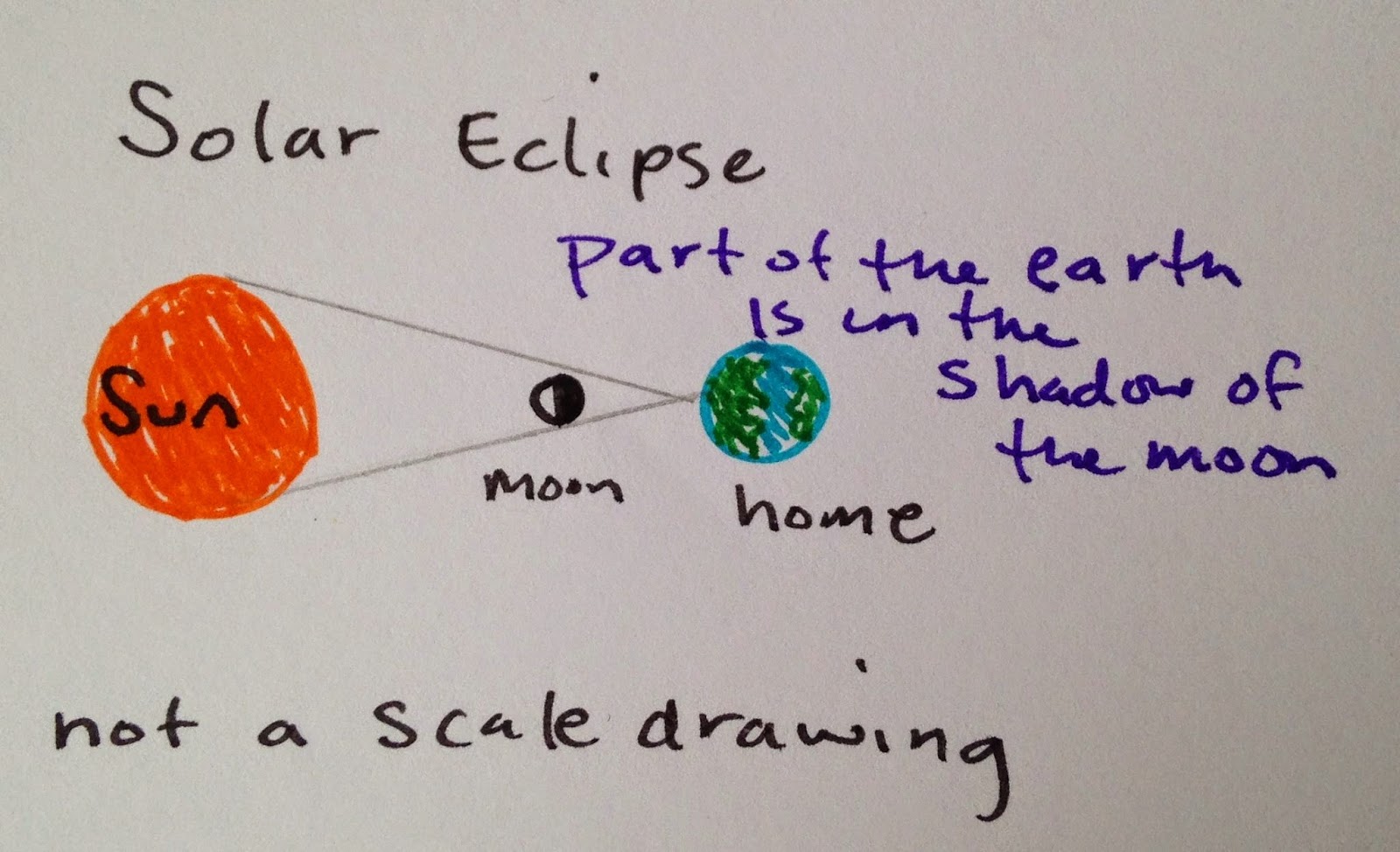 |
| Drawings and models aren't to scale but they can help up to understand the alignment of the sun, earth and moon. Sometimes we have to sacrifice some part of the model to clearly show another part. |
As luck (or solar and lunar patterns) may have it, about a month later, parts of the Earth will experience a solar eclipse. The moon will partially block the light of the sun from reaching the Earth. For more info, click here.
 |
It is easy to understand how solar and lunar eclipses have been the subject of legends in many different cultures. In our busy, industrial lives we don't depend upon the patterns of the sun and the moon the way our ancestors did. We have to learn the phases of the moon and the seasons as a part of school rather than learning about the sun and the moon because our lives depend upon knowing the patterns. Here is a brief article about different cultures' eclipse legends. |
We can be thankful to the internet because we can share these amazing events with people who will be lucky enough to actually witness them.




